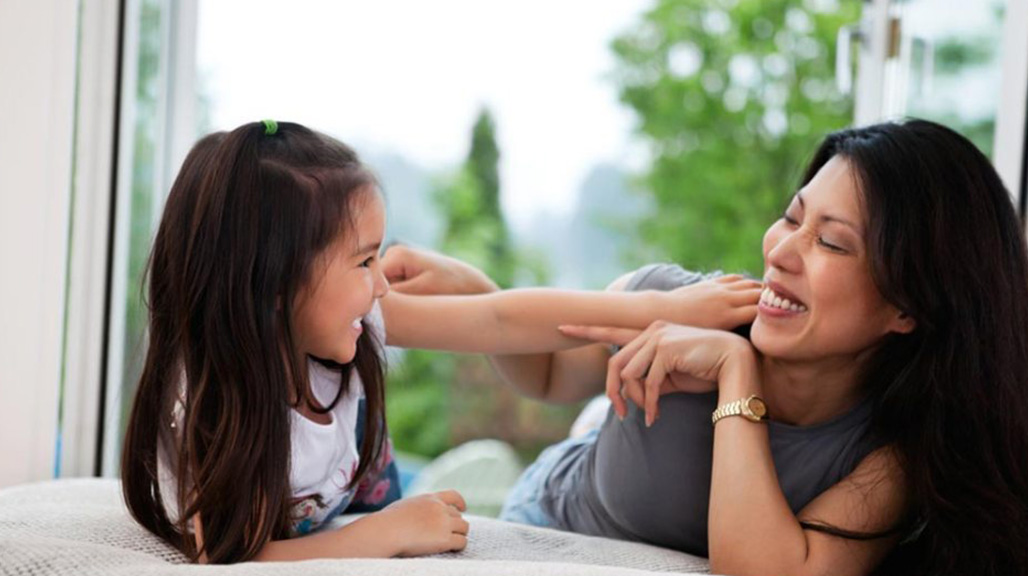Practicing Gratitude Through The Challenges Of Parenting
 Contributed by
Sonyan White
April 7, 2017
Contributed by
Sonyan White
April 7, 2017

Being a parent is one of life’s most profound, joyful experiences – but it certainly can have its challenging times as well.
Recognise yourself in these scenarios?
- No matter how organised you are about meals, your youngest throws a fit because he wants pizza for dinner. You are tired and you can feel yourself losing your temper. Now, what do you do?
- Your oldest left her soccer bag on the bus, and now you’re racing all over town to find her cleats before the game. You spend the journey time lecturing her about EVERY mistake she has ever made and how you always have to rescue her.
Sometimes, parenting feels like an exhausting test: You are struggling to meet the ever-changing demands and needs of your kids; your patience runs thin; and suddenly you hear yourself using the very words your mother used on you!
You fear you are becoming the parent you promised you would never be – and changing your perspective through gratitude is a powerful way to win throughout the challenges of parenting.
The Power Of Gratitude Is Scientifically Proven
Research shows that the practice of gratitude immediately increases your feelings of happiness and positivity.
It can shift which part of your brain is in charge; this changes your perspective, and improves your response to life’s most difficult challenges.
It Works In The Following Ways:
Feeling Gratitude Is Good For Your Health
Scientists have found that being in a state of gratitude actually shifts our heart into a healthier rhythm (or heart rate variability).
Focusing On The Positive Rewires Your Brain
By simply counting our blessings, we lift ourselves out of our mind’s usual restless state – characterised by anxiety, worry, fear, and rumination – to a state of calm and connection to the wisdom you need to solve your challenge effectively and intelligently.
Gratitude Programmes Our Subconscious To Create More Of What We’re Appreciating At The Time
When we focus on what makes us feel good in the present, our mind holds on to that “picture” – and we begin to act from those positive thoughts.
Our positive actions create more positive energy in our surroundings, and directly affect how others respond to us, including our children.
Three Daily Practices Of Gratitude For Your Family
1. Take Inventory Of Your Blessings Throughout The Day
The morning breeze you wake up to, the sound of your child’s voice, the nourishing meals you have together as a family… The list is endless. This practice of gratitude is especially important in the challenging moments as well. For me, this is the time to be grateful: Grateful that I am alive, grateful that I have a body which functions, grateful that people love me and care about me.
Choosing to be grateful throughout my toughest days has helped to relieve my anxiety and fears. By being grateful, I am able to bypass the negative judgments and the false beliefs trying to convince me that I was doomed.
Choosing gratitude gave me the strength and hope to move forward, and keep on working. It continues to enhance my perspective and expand my world view.
2. Notice What Your Kids Do Right
Practicing gratitude throughout your day not only works to shift your own perspective; it can also be practiced to increase your children’s happiness and improve your relationship with them as well.
It seems to be part of our wiring to focus on our children most when they do something wrong. And if we are exhausted or our patience bucket is empty, we’re likely to respond in a negative way – which we often regret later.
We parents are only human, but it’s up to us to consciously train ourselves to appreciate our loved ones for what they do right.
3. Every Night Before Bed, Write Down Three Things You’re Most Grateful For From That Day
Research shows that people who make note of their blessings immediately feel happier, and stay happier for as long as they continue this practice.
Take Action Challenge:
Turn your attitude of gratitude into a daily family practice, and involve your children in a way that is appropriate to their ages.
For instance, an easy and fun family practice is to install a dry-erase board in your kitchen and have everyone take turns writing down three things they are grateful for that day.
Inspiring gratitude in your children from an early age is one of the greatest gifts that you can give as a parent. Grateful children are not only happier; they develop a positive mindset that will carry them through life.
Join the Connected Women community, it’s free!
Powering success, happiness, and work-life balance.










Sorry, the comment form is closed at this time.